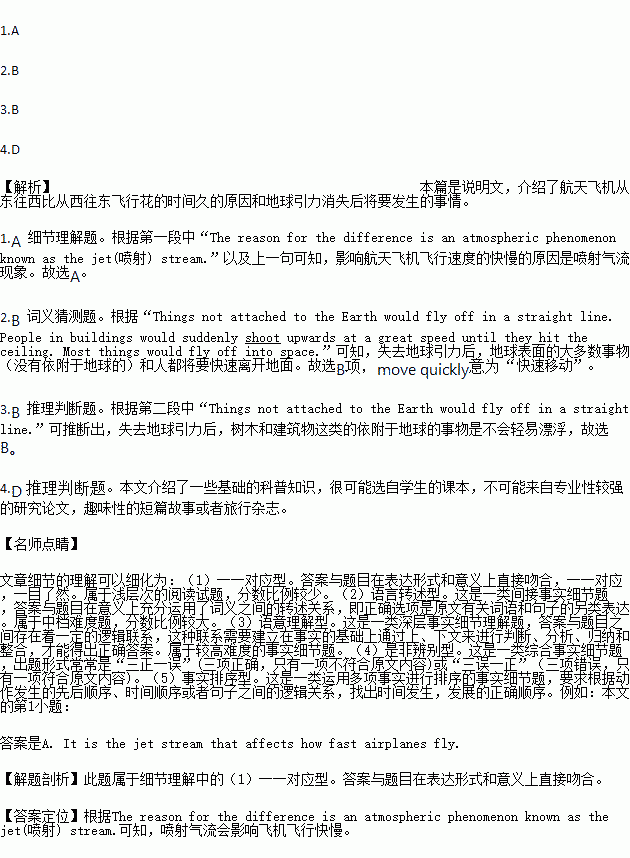题目内容
Have you ever wondered?
(1)Why do airplanes take longer to fly west than east?
It can take five hours to go west-east from New York (NY) to London but seven hours to travel east-west from London to NY. The reason for the difference is an atmospheric phenomenon known as the jet(喷射) stream. The jet stream is a very high altitude wind which always blows from the west to the east across the Atlantic. The planes moving at a constant air speed thus go faster in the west-east direction when the air moving with the wind than in the opposite direction.
(2)What would happen if the gravity on Earth was suddenly turned off?
Supposing we could magically turn off gravity. Would buildings and other structures float away? What happened would depend on how strongly the things were attached to the Earth. The Earth is moving at quite a speed moving at over a thousand miles per hour. If you turn something round your head on a string, it goes around in a circle until you let go of the string. Then it flies off in a straight line. “Switching off” gravity would be like letting go of the string. Things not attached to the Earth would fly off in a straight line. People in buildings would suddenly shoot upwards at a great speed until they hit the ceiling. Most things would fly off into space.
1.What information can we get from the first passage?
A. It is the jet stream that affects how fast airplanes fly.
B. Planes go slower when they are moving with the wind.
C. It takes more time to fly from NY to London than from London to NY.
D. The jet stream always blows from the east to the west across the Atlantic.
2.The word “shoot” underlined in the 2nd paragraph probably means“________”.
A. send for B. move quickly C. come out D. grow quickly
3.It can be inferred that without gravity ________.
A. buildings and other structures would float away
B. trees and buildings would not so easily fly off
C. something around your head would not float away
D. everything outside buildings would fly off into space
4.Where can we most probably read this text?
A. In a research paper. B. In a short story.
C. In a travel magazine. D. In a students’ book.


 I realized that as a family we are really lucky ________ school isn’t the only place where they think of him as “our Matthew”. It ________ to other parts of our lives as well — our friends, our family, our neighborhood, and our church.
I realized that as a family we are really lucky ________ school isn’t the only place where they think of him as “our Matthew”. It ________ to other parts of our lives as well — our friends, our family, our neighborhood, and our church.